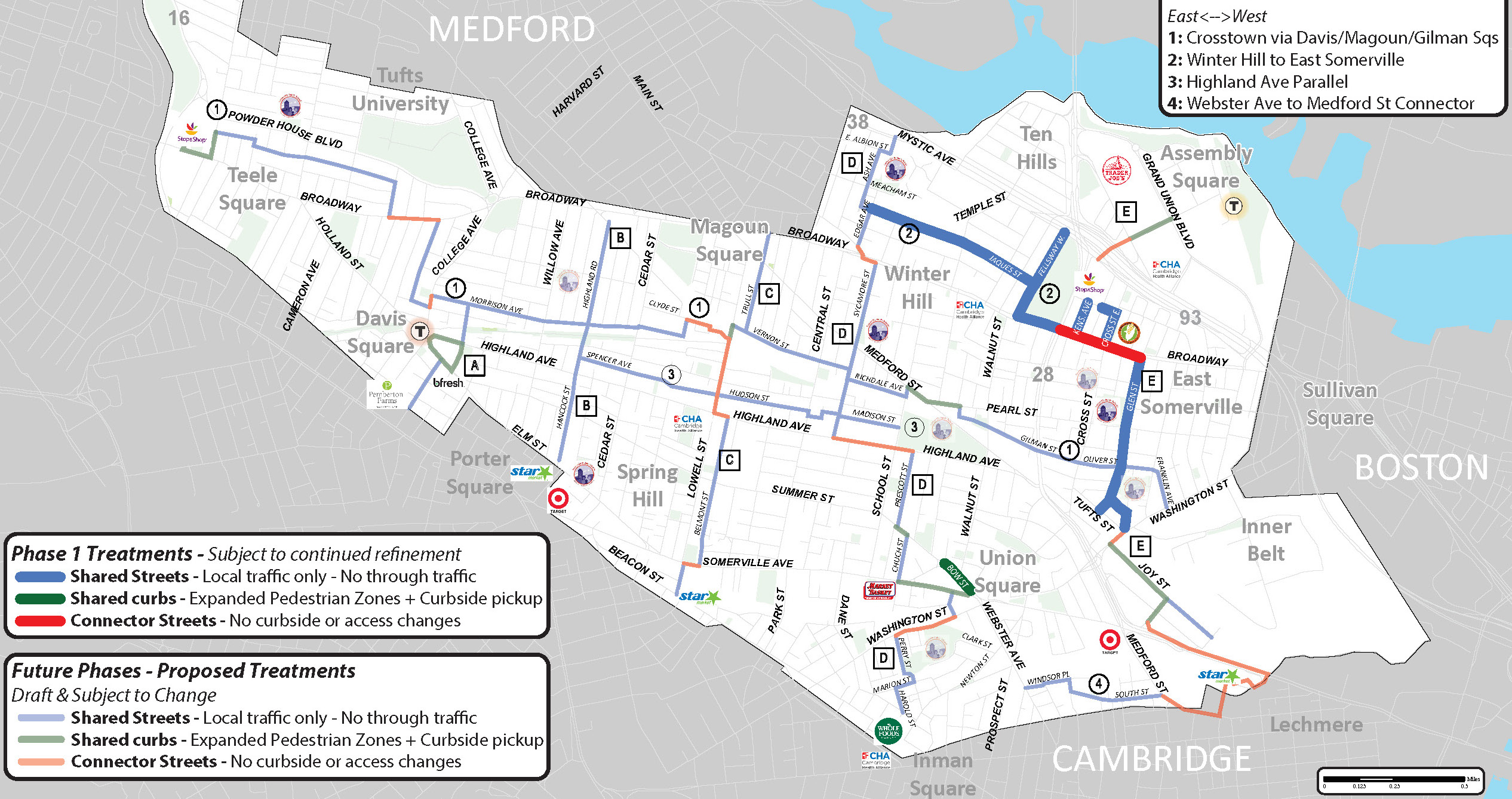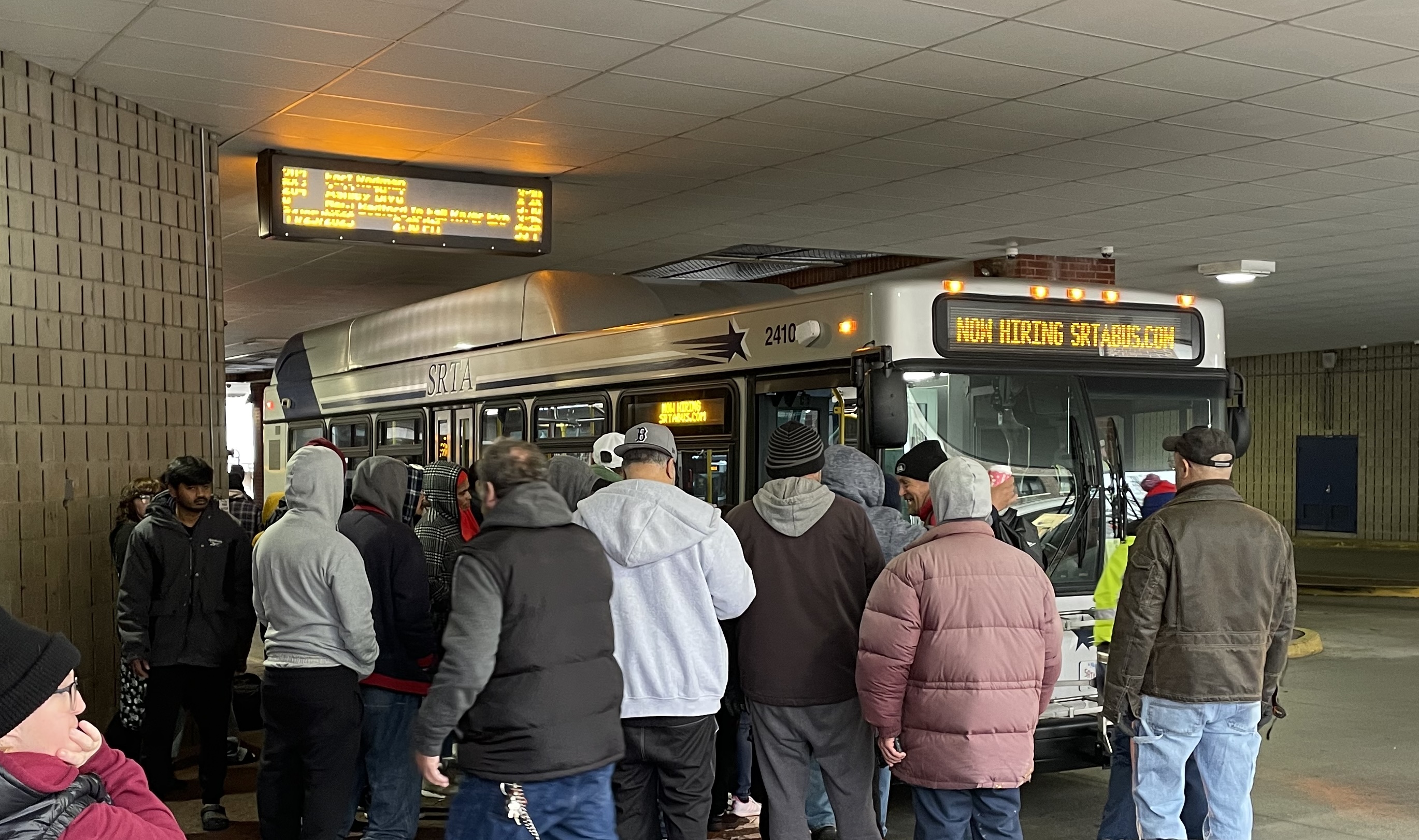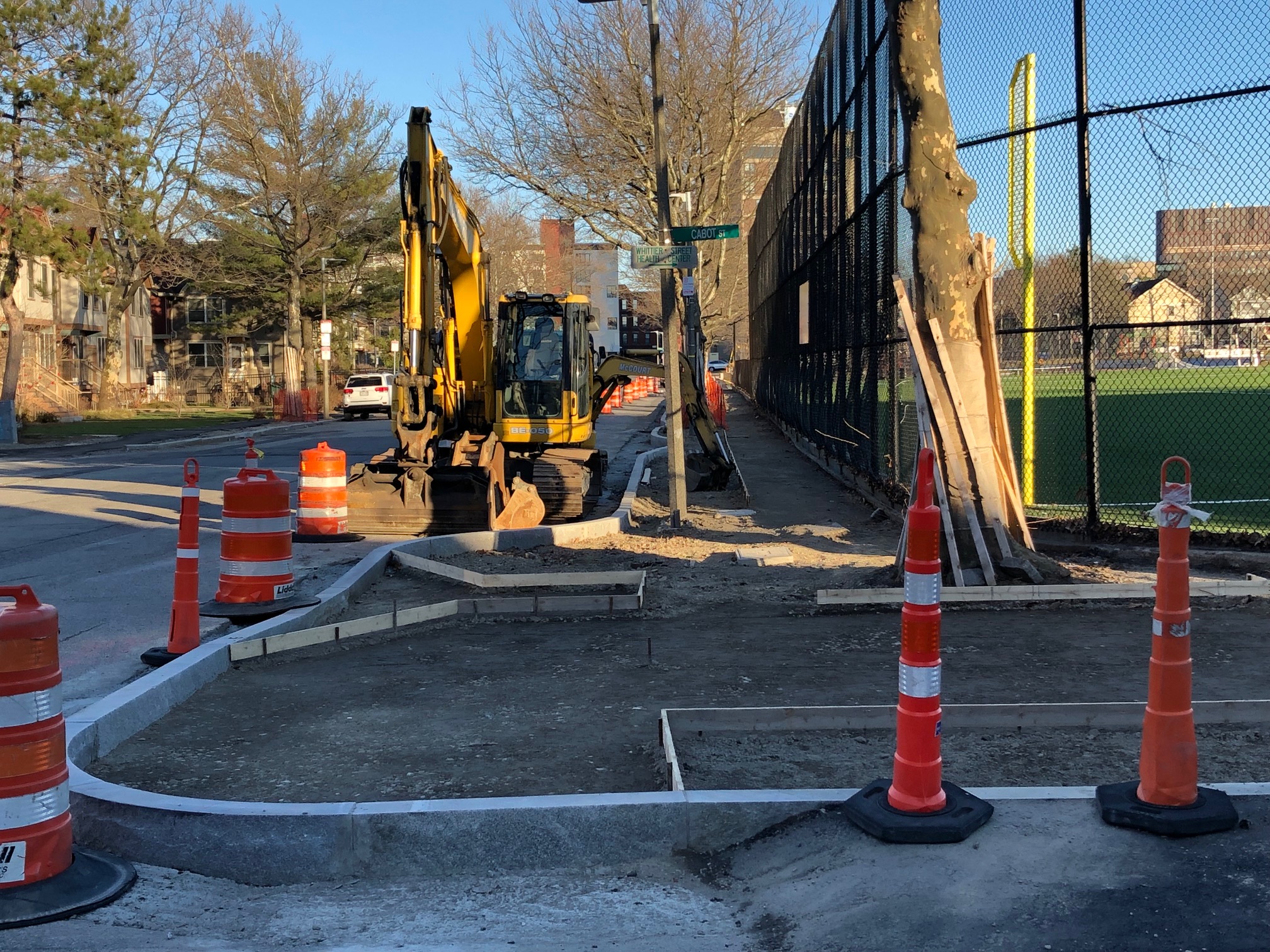The City of Somerville has announced a citywide mobility strategy to provide safer walking and biking routes with more room for physical distancing as "stay at home" orders ease this spring and summer.
Roughly a quarter of Somerville's households are car-free. The city's COVID-19 mobility plan therefore focuses on creating safer routes between residential neighborhoods and essential services like grocery stores in neighborhood business districts, plus sidewalk waiting areas where patrons have can have more space to physically distance outside businesses. The city is also in the process of converting its traffic signals so that pedestrians no longer have to press a button to request a signal.
One of the most prominent aspects of the plan is a citywide network of low-traffic "shared streets" where signage and barriers will discourage through-running motor vehicle traffic in order to create more space for people. Similar strategies to create safer street connections for people walking and biking during the pandemic have been employed in cities like Oakland, Charlotte, and Burlington.
Somerville's first "shared streets" corridor, which is scheduled to be implemented "in early June," according to a city press release, will extend from Jaques Street in Winter Hill to Glen St. in East Somerville.
Somerville transportation planners have proposed a network of additional "shared street" corridors (pictured in the map above – view a larger version here) that would crisscross the rest of the city, connecting residential neighborhoods with essential services like grocery stores, business districts, and health clinics.
Those additional routes would be implemented over the summer, and city officials are still soliciting feedback on the routes through its "SomerVoice" website.
Somerville is also planning to use cones and other temporary barriers to expand sidewalk zones into the asphalt on busy business districts like Union Square and Davis Square, similar to what the town of Brookline has done on Harvard St. and on Beacon St. in Coolidge Corner. Somerville officials are calling this a "shared curbs" strategy, and the first one will be coming to Bow St. in Union Square sometime within the next few weeks.
In a City Council hearing on May 12, City of Boston officials suggested that similar measures would be implemented in the Commonwealth's largest city "by the end of this month," but no details have been released since then.
The City of Cambridge has been even slower to address the mobility needs of car-free residents. In April, the City Council asked the City Manager to close Memorial Drive to automotive traffic and identify “streets in each neighborhood that could be closed to all non-essential traffic for the duration of the Health Emergency,” but Cambridge city officials have so far taken no action to honor those requests.






